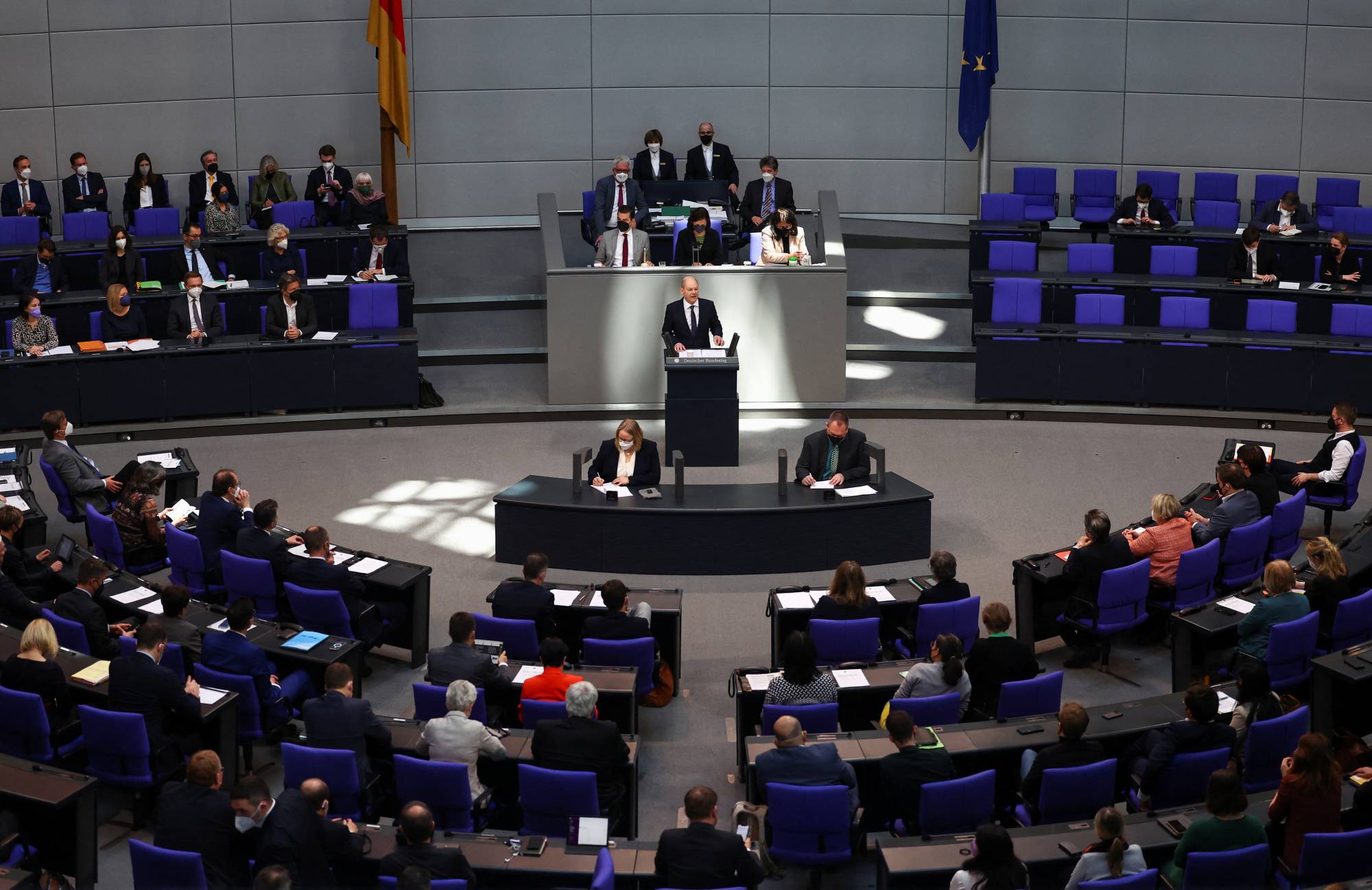German Chancellor Olaf Scholz surprised the world, and his own country, when he responded to Russia’s invasion of Ukraine with a €100 billion (¥13.68 trillion) plan to arm Germany, send weapons to Ukraine and end his nation’s deep dependence on Russian energy.
It was Germany’s biggest foreign policy shift since the Cold War, what Scholz called a "Zeitenwende” — an epochal change — that won applause for his leadership at home and abroad.
But six weeks later, the applause has largely ceased. Even as images of atrocities emerge from Ukraine since the invasion by President Vladimir Putin of Russia, Scholz has ruled out an immediate oil and gas embargo, saying it would be too costly. He is dragging his feet on sending 100 armored vehicles to Ukraine, saying that Germany must not "rush ahead.” There are new debates in the ruling coalition about just how to go forward with the massive task Scholz has laid out, let alone how fast.


















With your current subscription plan you can comment on stories. However, before writing your first comment, please create a display name in the Profile section of your subscriber account page.